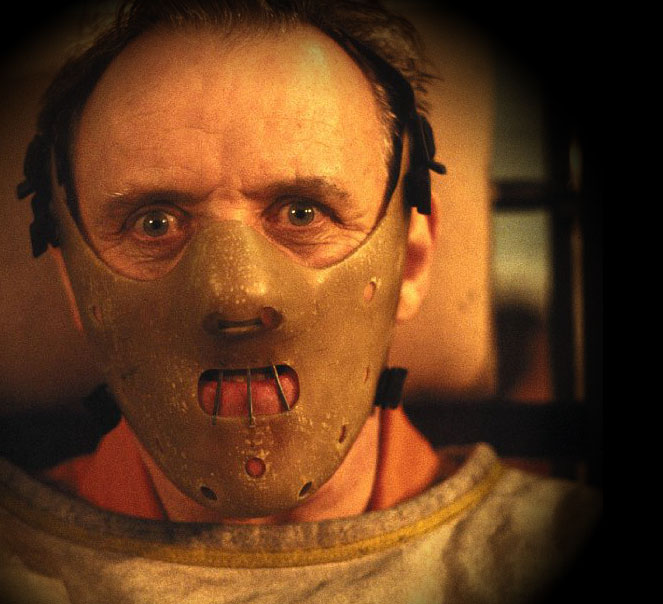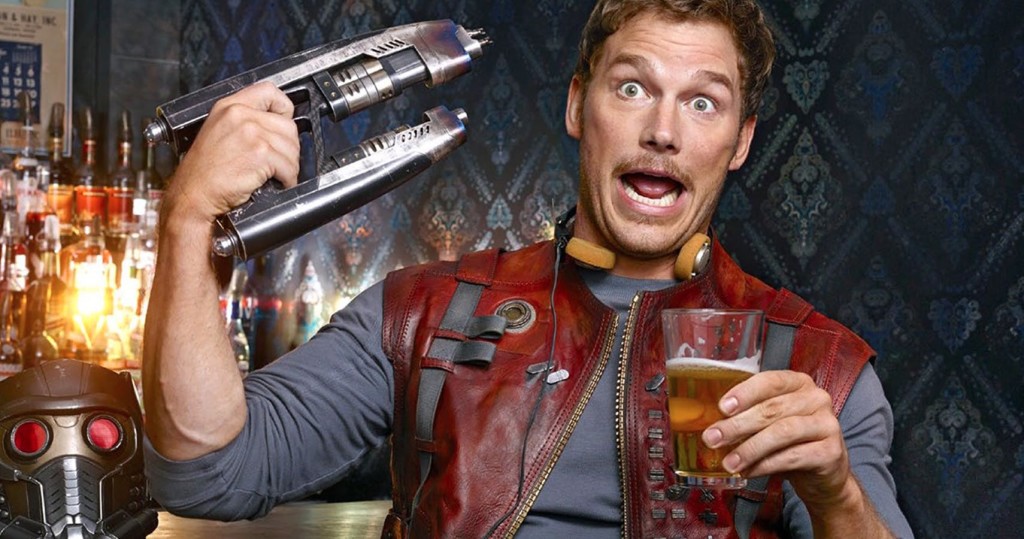We interrupt our regularly scheduled program (dialogue) to talk about character. Why character? Because yesterday some interesting conversations picked up AND I DISAGREED WITH EVERY SINGLE ONE OF THEM! Okay, that’s an exaggeration. My contention was that the script I reviewed, which sold back in 1994, never got made because the main character was so gosh-darn forgettable. He had ZERO going on. We knew NOTHING about him. Therefore, we had no emotional attachment to the story whatsoever.
One of you was quick to point out that Alien, one of the best movies of all time, tells us next to nothing about its characters and it didn’t seem to hurt the film at all. Others pointed out that action movies are often WORSE when the writer tries to jam a bunch of manufactured character development into them. Rose Tico has this deep tragic backstory in The Last Jedi. But she’s still one of the lamest characters ever.
So is character development overrated? Is it all just a matter of casting? I would answer that with a big fat NO. Not even close. In fact, character construction is still the most in demand writing skill in Hollywood. Put 10 guys in a room and ask them to come up with a cool plot or a killer set piece, and they’ll give you something that’s, at the very least, decent. Ask that same group of people to come up with a handful of great characters and nothing they give you will be useable.
There’s no question in my mind that if Man with the Football had a great main character, it would’ve been made. Why do I say that? Because good characters don’t come around often in Hollywood. So if an actor encounters one, they’re going to want to play them. That character was lame. I wouldn’t know a single actor in Hollywood who’d want to play him.
Now there’s a couple of things at play here that most writers aren’t aware of. When they hear “good character” or “make a character likable,” they think in terms of Adam Sandler movies or cheesy romantic comedies where the main character hands a homeless person a hundred dollar bill or, in the case of the most recent Sandler movie, Murder Mystery, Sandler busts a kid trying to steal something – BUT HE DOESN’T RAT HIM OUT! He lets him correct his mistake without arresting him. Gosh that Adam Sandler guy is nice, isn’t he?
That’s not real character development. It’s not real “character likability” development. It’s a hacky studio note that even the interns at CAA could give. And it’s not what we’re talking about today. The truth is, character development is varied. You will not use the same amount of it in every screenplay. Some stories require less character development. Some require more. Some GENRES require less character development. Some genres require more. A straight drama will always require the most character development of all the genres whereas an action movie might contain very little.
But hear me know, believe me later and understand me next week – YOU MUST ALWAYS add character development to your hero. And YOU MUST ALWAYS give us a hero that we want to root for. That doesn’t mean they have to be likable. But we have to want to root for them. Nobody liked that Hannibal Lecter ate a bunch of human beings to death. But, oddly, we still rooted for him to escape in the end. So today, I’m going to provide you with the eight most important things that affect how the reader perceives your character. I’m going to call this “care-achter” development. Because these are the things that make us CARE about your hero.
Backstory – Backstory is anything that’s happened to your character before the events of the movie took place. Backstory can be presented through flashbacks or alluded to through dialogue. Backstory is actually one of the least effective ways to influence a reader’s emotional response to a character. Movies are about what’s happening NOW, in the present, and therefore people don’t care all that much about what happened in the past. If I hear you lost your kid in a car crash – I’m sorry but big whoop. That’s every movie. We’re too desensitized to that stuff. Now if you start your movie with a flashback that SHOWS us the crash the kid died in, we’re definitely going to have a deeper emotional connection to that loss. But I would only rely on this sort of thing if that’s what the movie is really about. In other words, if the film is about a mother trying to recover from the loss of her child, that can be very powerful. But if you try to throw dead-child backstory into Independence Day 3, the audience is too smart to buy into that nonsense.
Actions – This is one of the single most important ways to influence how the audience thinks of a character – their actions. It’s also one of the primary character development tools in an action movie. Does your character step up to the plate and act when times are tough? If your character, Dan, is picking his 10 year old son up from school and sees Jake, 11, bullying him, does Dan walk up to Jake’s father and say something? That simple action can have a HUGE influence on how we perceive Dan. One of the easiest ways to get readers on your hero’s side is to write an early scene where your character acts in a strong manner. Or rights a wrong. That’s all I was asking from yesterday’s script. Not some big goofy backstory. But ANYTHING that gave me some insight into the hero and made me want to root for him.
Choice – Choice is action’s little cousin. It’s basically the same thing, but you add a little more weight to the action so that there’s not just a choice involved, but a difficult choice. Take the exact same scenario I mentioned above but change it so that Jake’s dad also happens to be Dan’s boss. So for Dan to go up and say something to Jake’s father is actually jeopardizing his relationship at work. If Dan’s already on shaky ground at his job, the choice becomes even harder. However, if Dan does the right thing (mentions Jake’s behavior to his boss), we’ll like him A LOT.
How They Treat People – This technically falls under the action umbrella as well, but I’m separating it because character interaction is such a major component of a screenplay. So if your character is treating everyone badly, you can guess how we’re going to perceive them. Conversely, if they treat people well, we’ll like them. These are the tiny slivers of character development that writers overlook. And yet in an action script where we want to convey as much about a character as possible in as little time as possible, paying attention to the way your hero treats others might be all you need to get him on the audience’s side.
Personality – A favorable personality can do a majority of the work for you. If we like a character because of their general disposition, we don’t need any save the cat moments or yell at bully’s dad moments. The magnetism of that personality is going to drive the majority of our support. Marvel has become a master at this. From Tony Stark to Peter Parker to Thor to Peter Quill, we like positive charismatic people. So if you’re writing a character like this, you don’t even have to worry about doing anything else. We like the character from the second they start talking.
Their situation in life – A character’s current lot in life has a huge effect on the level of sympathy we have for them. A character who lives in a tiny place in a bad part of town and barely makes ends meet is higher on the sympathy scale than a billionaire who owns a penthouse on Fifth Avenue. — BUT if you give the billionaire an A+ personality, it can override our negative perception of their privilege (Tony Stark). There used to be a belief in Hollywood that rich people couldn’t be main characters for this reason. We’d reject them because their life was great. But I think you’re starting to see how this works. You assess who your character is, how they’re likely to be perceived, and you adjust accordingly. Some characters have so much working against them that you need to add a lot of these tools to make us like them.
How others treat them – A lot of writers trying to make their heroes likable assume they can only do so by looking inwards, at the character themselves. But actually, you can make characters likable through the way others treat them. Look no further than Cinderella. One of the reasons Cinderella is so insanely likable is that her stepmother and two step-sisters are so mean to her. When we see people being mean to others, our sympathy immediately goes out to them. I actually leaned this lesson by watching the reality show, Survivor. On that show was this guy named Russell. He was one of the worst human beings you could imagine. He was duplicitous, mean, vengeful, a liar, and just plain not a good person. He also holds the title of being one of the show’s all time favorites. He has tens of millions of fans. But how can that be? Well, the thing was, everybody hated Russell so much that they were constantly trying to get him off the show. They tried everything in their power. And they would say it right to his face. “We don’t like you. We will do anything to get you out of here.” They were so awful to him that audiences gradually found themselves rooting for Russell. So never underestimate the influence of how others treat your hero.
Whether or not they get back up – Movies are about knocking your hero down. It will happen over and over again. In fact, if your hero isn’t constantly being knocked down by obstacles and conflict, there probably isn’t enough happening in your movie. But the critical thing here is HOW YOUR CHARACTER DEALS WITH BEING KNOCKED DOWN. Do they give up? Or do they get back up? One of the most likable types of people on the planet are people who get knocked down but get back up with a positive attitude. They keep trying. Failure is an obstacle to them, not an end destination. So an early scene where your hero gets their butt handed to them badly but they still get back up and want to keep going – that will have a huge positive effect on how we see that character.
I’ll finish off by repeating what I said yesterday. If I’m not rooting for your hero, I don’t care what happens in your script. So make sure that when you’re writing that first act, you’re thinking about how the audience is perceiving your hero. Cause the flip side of what I just said is that if you can make us fall in love with your hero, you don’t need to write the best story in the world. We’re going to care so much about that person that we’ll be willing to follow them anywhere.
Hey, do you have a logline that isn’t working? Try out my logline service. It’s 25 bucks for a 1-10 rating, 150 word analysis, and a logline rewrite. I also have a deluxe service for 40 dollars that allows for unlimited e-mails back and forth where we tweak the logline until you’re satisfied. I consult on everything screenwriting related (first page, first ten pages, first act, outlines, and of course, full scripts). So if you’re interested in getting some quality feedback, e-mail me at carsonreeves1@gmail.com and I’ll send you a quote!





